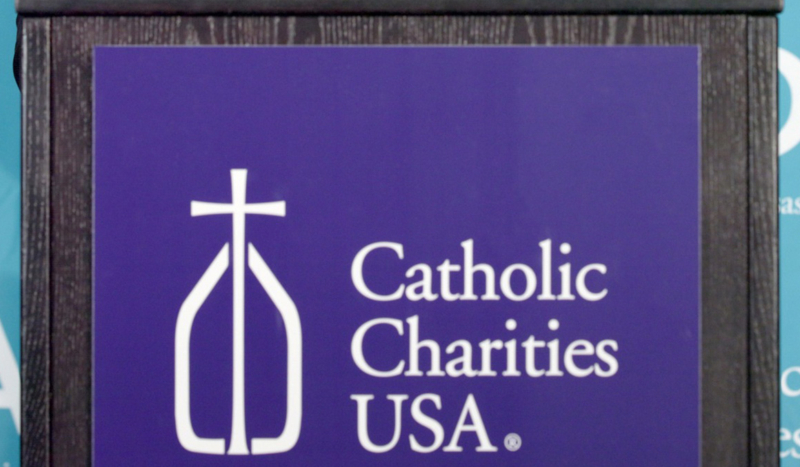
Catholic Charities USA / Facebook
CV NEWS FEED // Catholic Charities Bureau of the Diocese of Superior, Wisconsin, appeared before the U.S. Supreme Court this week, asking the Justices to recognize its outreach to the poor, elderly, and disabled as an integral expression of its Catholic faith.
The case stems from the Wisconsin Supreme Court’s March vote to uphold a lower court ruling that denied Catholic Charities a religious exemption from the state’s unemployment insurance program. Because the ministry serves people of all faiths and does not seek to convert them, the court concluded its work was not “primarily religious.”
As a result, Catholic Charities was excluded from a Church-run unemployment program and required to participate in the state system instead — despite arguing that its outreach is a direct expression of Catholic teaching and that the state’s program is more costly and less effective.
The organization brought the case to the U.S. Supreme Court March 31, represented by the Becket Fund for Religious Liberty.
Catholic Charities contends that its work is a natural outgrowth of Catholic doctrine, especially the Church’s commitment to corporal works of mercy. The organization serves individuals throughout northern Wisconsin, helping the disabled, elderly, and poor, regardless of religious affiliation.
Becket Fund stated that Wisconsin’s refusal to consider this ministry as religious contradicts the Church’s own understanding of its mission.
“It doesn’t take a degree in theology to figure out that when Catholics help the needy it is an act of faith,” said Eric Rassbach, vice president and senior counsel at Becket Fund. “Yet Wisconsin says Catholic Charities isn’t doing anything religious at all. That wrongly punishes both Catholic Charities and the poor, the elderly, and the disabled they serve.”
>> DOJ, 19 states, religious groups back Catholic Charities in Supreme Court case <<
Becket Fund also criticized the Wisconsin Supreme Court’s position as requiring faith-based groups to proselytize or restrict aid in order to qualify as religious — an approach that conflicts with Catholic teaching, which holds that care for others should never be contingent on accepting the faith.
“For over a century, Catholic Charities has been a Good Samaritan to the poor, elderly, and disabled throughout northern Wisconsin,” said Bishop James Powers of the Diocese of Superior, according to Becket Fund. “We pray the Court protects this vital work of improving the human condition, recognizing it as central to our duty as Catholics.”
A decision from the Court is expected before the end of June.

